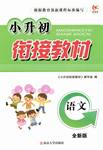题目内容
B
Our eating habits(习惯) are very important for good health and a strong body. There are times when most of us would rather eat sweets and ice-cream than meat and rice. Sweets and ice-cream are not bad if we eat them at the end of a meal. If we eat them before a meal, they may take away our appetite(食欲). It is important for us to eat our meals at the same time each day. When we feel hungry, it is a sign that our body needs food. When we feel angry or excited, we may not want to eat. A long time ago, in England, some judges(法官) used to decide whether a man was telling the truth by giving him some dry bread. If the man could not eat the bread, it showed that he was telling lies. Although this seems very strange and rather foolish, it is indeed a very good way of finding out the fact. A man who is worrying about something has difficulty in eating anything dry. Because he is worrying, he loses his appetite and does not want to eat.
61. We must have good eating habits because ____.
A. we want to eat more B. we want to enjoy our meals
C. we want to be healthy and strong D.we want to have a good appetite.
62. It is good to eat sweets and ice-cream ____.
A. when we are hungry . B. when we want to C. after the meal D. before the meal
63. We'd better have our meals ____.
A. at the same time each day B. when our work is over
C. when the meal is still hot D. when every one of the family is home
64. According to the judges in England, if a man tells a lie, he____.
A. eats dry bread easily B. eats dry bread with difficulty
C. eats a lot of dry bread D. drinks milk with difficulty
65. A man who is angry ____.
A. has a better appetite B. likes to tell lies
C. likes to eat ice-cream D. has a poor appetite
61-65 CCABD
略

练习册系列答案
 学而优衔接教材南京大学出版社系列答案
学而优衔接教材南京大学出版社系列答案 小学课堂作业系列答案
小学课堂作业系列答案 金博士一点全通系列答案
金博士一点全通系列答案
相关题目